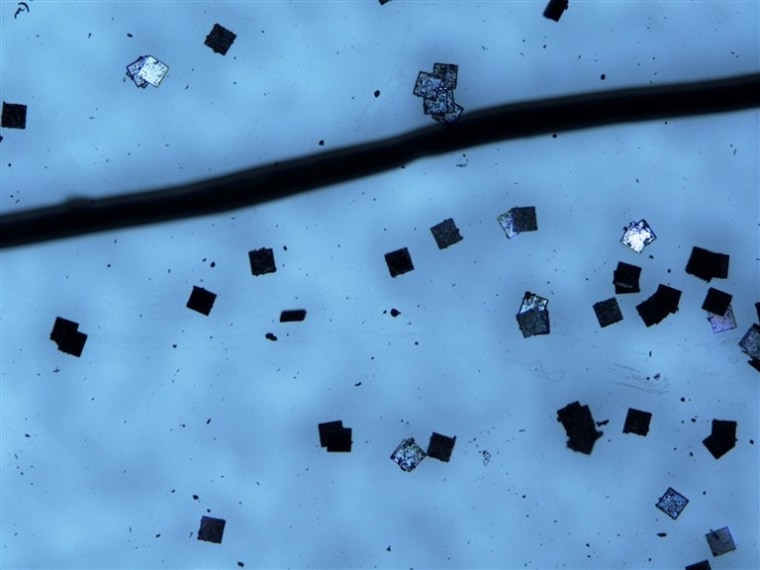Tiny computer chips used for tracking food, tickets and other items are getting even smaller.
Hitachi Ltd., a Japanese electronics maker, recently showed off radio frequency identification, or RFID, chips that are just 0.002 inches by 0.002 inches and look like bits of powder. They're thin enough to be embedded in a piece of paper, company spokesman Masayuki Takeuchi said Thursday.
RFID tags store data, but they need to be brought near special reading devices that beam energy to the chips, which then send information back to the readers.
The technology is already widely used to track and identify items, such as monitoring the distribution of food products or guarding against forgery of concert tickets.
Shown to the public for the first time earlier this month, the new chip is an improvement on its predecessor from Hitachi — the Mu-chip, which at 0.4 millimeters by 0.4 millimeters, looks about the size of the period at the end of this sentence.
The latest chip, which still has no name, is 60 times smaller than the Mu-chip but can handle the same amount of information, which gets stored as a 38-digit number, according to Hitachi.
One catch is that the new chip needs an external antenna, unlike the Mu-chip.
The smallest antennas are about 0.16 inches — giants next to the powder-size chip.
There are no plans yet to start commercial production of the new chip, Takeuchi said.
Invisible tracking brings to mind science-fiction-inspired uses, or even abuses, such as unknowingly getting sprinkled with smart-tag powder for Big Brother-like monitoring.
"We are not imagining such uses," Takeuchi said, adding that the latest chip is so new — and so miniature — Hitachi is still studying its possible uses.
